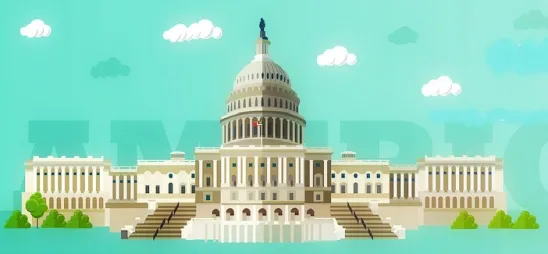On the morning of Saturday, March 14, 2020, the U.S. House of Representatives passed H.R. 6201, the emergency Families First Coronavirus Response Act (FFCRA), in response to the 2019 novel coronavirus (COVID-19) pandemic. The U.S. Senate is taking up the bill and is expected to vote on the proposal soon. The Senate may pass, reject or modify the bill.
What the bill says
As currently written, the bill proposes many changes to increase public health measures as well as provisions that require most U.S. private employers to provide paid leave to employees under certain circumstances. While employers are responsible for funding the paid leave should it become law, employers would be able to take tax credits for the paid leave provided to employees under the FFCRA.
Emergency Paid Sick Leave Act
Coverage and uses
The Emergency Paid Sick Leave Act (PSLA) provisions of the FFCRA apply to private employers with fewer than 500 employees and public employers with at least one employee. Employers covered by the law would be required to provide employees with two weeks of paid sick leave, paid at the employee’s “regular rate,” for any of the following reasons:
- Self-isolation due to coronavirus diagnosis
- Medical diagnosis or care if the employee is experiencing coronavirus symptoms
- Compliance with a recommendation or order by a public official with jurisdiction or health care provider on the basis that the physical presence of the employee on the job would jeopardize the health of others due to either:
- Employee’s exposure to coronavirus
- Employee’s exhibition of coronavirus symptoms
- Caring for or assisting a family member who is either:
- Self-isolating due to coronavirus diagnosis
- Experiencing coronavirus symptoms and needs medical diagnosis or care
- Caring for his or her child because the child’s school or place of care has been closed, or the child’s care provider is unavailable due to coronavirus
Additionally, if passed, the pay entitlement of an employee taking paid sick leave to care for a family member or to care for a child whose school has closed, would be reduced to two-thirds of their regular rate of pay. Most employees would be eligible for leave regardless of their tenure with the organization or full- or part-time status. The bill, as it stands, would ensure employees who work under a multi-employer collective agreement and whose employers pay into a multi-employer plan are similarly provided with leave.
Existing paid leave policies
Employers may not require employees to exhaust their current sick leave before using leave under the current bill. Furthermore, if the PSLA is enacted as written, employers cannot change their existing paid leave policies, like vacation or paid time off (PTO). The paid leave provided under the PSLA would be provided in addition to the paid leave provided by employers as of the day before enactment of the bill.
Effective date, carryover and expiration
If passed as written, the PSLA will take effect no later than 15 days after the date of the bill’s enactment and paid sick leave would not carry over from year-to-year. PSLA entitlements would expire on Dec. 31, 2020.
Emergency Family and Medical Leave Expansion Act
Coverage and uses
The Emergency Family and Medical Leave Expansion Act (EFMLA) provisions of the bill would apply to private employers with fewer than 500 employees. There is a provision that may allow the Secretary of Labor to exempt some businesses with fewer than 50 employees from the requirements.
Under the EFMLA, employees who have worked for the employer for at least 30 days will be entitled to take up to 12 weeks of job-protected leave under the Family and Medical Leave Act (FMLA) for any of the following reasons:
- To adhere to a requirement or recommendation by a health care provider or a public health official having jurisdiction to quarantine due to exposure to or symptoms of coronavirus
- To care for an at-risk family member who is adhering to a requirement or recommendation by a health care provider or a public health official to quarantine due to exposure to or symptoms of coronavirus
- To care for a child of the employee if the child’s school or place of care has been closed, or the childcare provider is unavailable, due to coronavirus
Under the bill, the first two weeks of such FMLA may be unpaid. An employee may choose to substitute accrued vacation leave, personal leave, or other medical or sick leave during this period, but an employer may not require an employee to do so. After the two weeks of unpaid leave, employers must provide up to 10 weeks of paid FMLA leave at a rate of no less than two-thirds of the employee’s regular rate of pay.
Under the EFMLA, the Secretary of Labor may exclude certain health care providers and emergency responders from the employees who are eligible for leave. Additionally, the Secretary of Labor may exempt small businesses with fewer than 50 employees if the EFMLA requirements will jeopardize the business.
Employee protections
As with traditional FMLA leave, this leave is job-protected, meaning an employer must offer the employee the same or equivalent position upon their return to work. The bill contemplates an exception to this requirement for employers with fewer than 25 employees if the employee’s position does not exist after FMLA leave due to an economic downturn or other operating conditions that affect employment caused by a public health emergency during the period of leave. Certain conditions, including reasonable attempts to return the employee to an equivalent position, and required efforts to contact a displaced employee for up to a year after they are displaced, are required.
Effective date and expiration
If passed as written, the EFMLA will take effect no later than 15 days after the date of the bill’s enactment, and will remain in place for the one-year period following enactment.
Tax credits for paid leave
As drafted, the bill provides tax credits for the employer’s portion of payroll taxes for wages paid to employees taking either paid sick leave or FMLA pursuant to the FFCRA. The sick leave credit for each employee would be for wages as much as $511 per day while the employee is receiving paid sick leave to care for themselves, or $200 per day if the sick leave is to care for a family member or child if the child’s school is closed. The amount of tax credit for qualified family leave wages for each employee is $200 per day or $10,000 in aggregate.
Legislation is pending and subject to change
The information highlighted in this article regarding the paid leave provisions and tax credits are a summary of the current state of the legislation. Once the bill is taken up by the Senate, the legislation may change.




 />i
/>i
